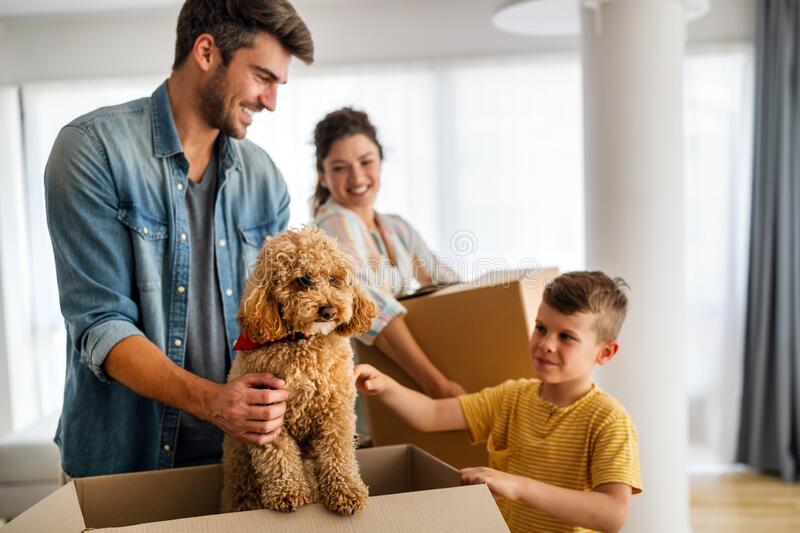
Puppy Checklist: Everything You Need for A New Puppy Guide
Inviting a puppy into your property is an incredibly exciting time filled up with laughter, snuggles, fun and that unmistakable (and adorable) puppy smell! But caring for a puppy includes a way of measuring responsibility, and it’s important to prepare your home and family for their arrival.
Puppies-like babies-need a lot of stuff. They require water and food bowls, goodies, toys and even more to enjoy a wholesome and enriched life in their new home.
New Puppy Checklist Guide
If you’re welcoming home your first pup or haven’t been in fee of the grocery list before, you might not exactly know everything you need for your new arrival. Let this puppy checklist be your guide.
Desk of Contents
New puppy materials: The requirements
Puppy training tips
How to plan your new puppy
Your new doggy: Additional considerations
Related articles
New puppy supplies: The requirements
Plan your puppy’s arrival by ensuring you have the basics ready and waiting for them.
Puppy treats: Puppy treats play a huge role in training your brand-new companion. Search for snacks that are smooth, chewable and low in extra fat and calories. Remember that while goodies help create a connection and reinforce positive actions during training, they shouldn’t make up more than 10% of your pet’s overall diet.
Food and water bowls: Your pup should have dedicated food and water bowls. When you may released your puppy’s food bowl only at mealtimes, fresh water should always be available. If you find your pup eats too fast, look at a slow-feeding bowl, made to help your puppy eat at a far more appropriate pace.
You’ll desire a secure and strong leash and collar before you get going. If your pup pulls, ask a dog trainer or a store spouse about option options that can help discourage the behavior. Collars should be adorned with a filled-out identification tag which includes your puppy’s name and your contact information.
Crate: House training is a huge part of new puppy parenthood, and it needs patience and devotion. Crate training allows your pup to truly have a safe-feeling host to their own in your house while also assisting to decrease accidents on the carpet and improper chewing on unattended shoes and other items. Plan to crate your pup once you cannot watch them, including when you’re out of our home at work and in a single day while you’re sleeping. Find out about crate training solutions to help your pup.
Cleaning products: Puppies don’t usually come fully potty trained, so new dog or cat parents should anticipate accidents. Search for an enzyme cleaner to help remove urine discolorations, and adhere to pet-safe cleaners. Be prepared for losing and dog wild hair in your house. Vacuums with pet-hair extensions or capacities can come in handy.
Puppy toys: All dogs need mental stimulation, and toys are a great way to play and connect to your brand-new puppy. Search for toys created for puppies-they’re usually smaller and work better with their pup teeth-and consider interactive treat toys and puzzle toys to keep your pup engaged and active. Dedicate amount of time in your entire day for playing and building your connection.
Dog bed: Although your puppy may sleeping in a crate during the night, it’s important to purchase your puppy your dog foundation. Your pup can slumber on the foundation during the day, and it could be another place they know is theirs and open to go to for breaks. When looking for the right dog bed, make certain to get the one which can accommodate your puppy’s breed and size as they grow while also keeping in mind that some puppies may decide to chew their bed if left alone. A chuck blanket or bed made of durable materials may be best for teething puppies – along with supervision.
Shampoo and grooming tools: Even though you intend to take your pup to grooming appointments, you ought to have basic grooming products at home. Dog-friendly shampoo, a comb, a brush, nail clippers and styptic powder are essential tools to possess on hand. When bathing your pup at home, always utilize a shampoo designed designed for pups. Never use human being shampoo on your pup.
Medications and preventive options: Talk to your veterinarian about any medications and preventives your pup should have. These could include flea & tick prevention and a regular monthly heartworm preventive.
New pet parents should expect to spend adequate time on training. This consists of potty training, crate training and teaching new cues. Follow these tricks for successful pup training.
Always use positive encouragement. Never hit your pup when they take action incorrect. Reinforcing with make can cause fear in your puppy and will not help them learn. Instead, use positive reinforcement methods, and pay back your pup with snacks or reward when they do something that you keep these things do. This consists of going to the toilet outside, learning a fresh trick or walking politely on the leash. Keeping yourself positive can help your pup learn behaviors quickly and effectively.
Socialize your pup. Socialization is very important to all puppy dogs. As your pup obtains the correct vaccinations, gradually start exposing them to different situations and new dogs and folks. Keep initial connections short and build up to longer playdates. When socializing your puppy with new household pets and people, continue to keep a close eyeball about them to avoid negative connections and experiences.
Find out about dog body gestures. Talk to a dog trainer and brush through to dog behavioral cues and body gestures. Not only will this help you identify whenever your own puppy is uneasy or beginning to get agitated, you’ll be aware of the body vocabulary of other dogs, too. This can help you intervene before connections between dogs have a negative turn.
Be regular in your training exercises. Puppies thrive on routines, specially when it involves potty training and learning new things. Repetition and persistence are key. Dedicate period to training every day to be able to help your puppy learn.
Petco offers a number of behavior and training resources, as well as dedicated puppy-training classes that will help you as well as your puppy learn alongside one another.
How to plan your brand-new puppy
Furthermore to searching for all the requirements and planning for training, there are specific preparations you will need to make and things you should think about when taking home a fresh dog. Follow these rules to help make the move as smooth as you possibly can.
Set up your home. Dedicate an area or space at home for your puppy and their things. This space should include a nourishing area and a crate. Make sure it’s close to where your household usually congregate e which means that your doggie doesn’t feel isolated and by themselves.
Use pup gates to stop off potentially dangerous areas such as stairways or basements. Be sure to pup facts your home by securing cabinets, tucking away wires and taking away any toxic plant life from areas your pup can access.
Look for a veterinarian. Your pup should be seen with a veterinarian shortly after you bring them home,even in case a shelter, recovery group or breeder has given your puppy a clean costs of health. Choose a certified veterinarian in your area and make a scheduled appointment so that your new veterinarian can meet your pup and provide a general exam.
Create your schedule. A new puppy takes a lot of determination and attention. Establish a daily habit and program with other family, and designate duties so everyone understands their responsibilities. When you have to be away from your pup for long periods of time for work, consider selecting a reliable dog sitter, who will come to your home and let your puppy out for playtime and potty breaks.
Your new dog: Additional considerations
Dog or cat parents have a lot of choices to make when it comes to a new canine companion. Here are some additional what to keep in head:
Pet insurance: Although not everyone chooses to buy family pet insurance, it might come in convenient during your puppy’s life as they grow into a grown-up dog. Pet insurance can help cover veterinary visits or unexpected medical or emergency expenditures. Prices for family pet insurance vary depending on your dog and coverage options.
Vaccinations and licenses: Find out what vaccinations and licenses will be required by your state or municipality. A rabies vaccine is often required, and many states and places expect dog parents to obtain a dog license.
Additionally, speak to your veterinarian about recommended vaccinations for your pet according to your lifestyle and location.
Day health care: In the event that you work a complete timetable and can’t be home during the day to view and connect to your new dog, look at a daycare provider or attracting a dog or cat sitter to provide your pup with socialization, training and stimulation throughout the day. Day treatment classes can help your pup expend energy and find out new things while you’re at the job.

